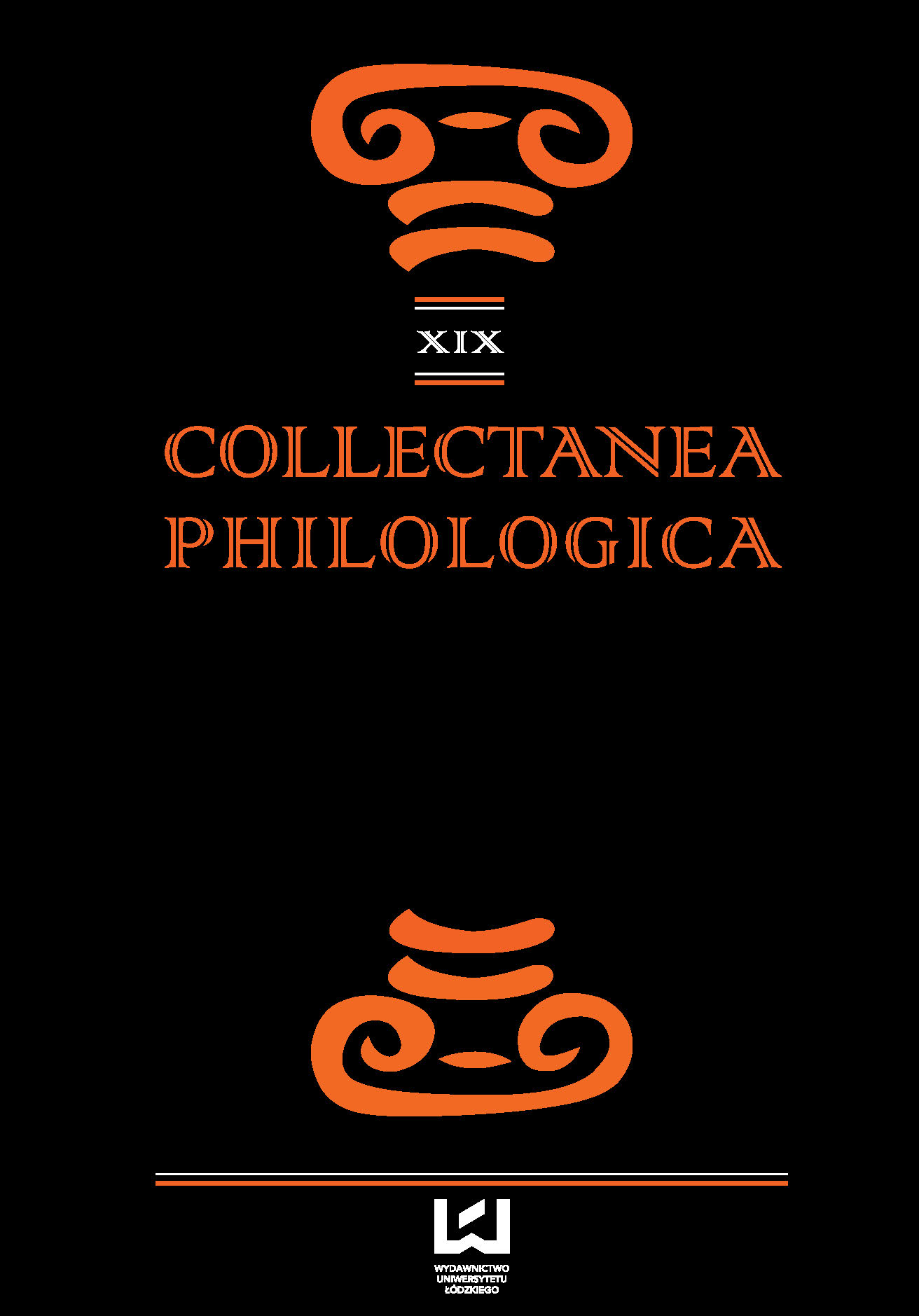La poesia di Giovanni Pietro Arrivabene
DOI:
https://doi.org/10.18778/1733-0319.19.04Słowa kluczowe:
Phoebus, ianitor, Perseus, fortuna, Pontifex, PiusAbstrakt
With this brief study, first the author deals with the poetry by Giovanni Pietro Arrivabene. In fact, for the first time he has published a long Latin poem of the poet preserved in a single manuscript in Pienza, in the library, which was of Pio II. The poet, who lived during the Renaissance, had a very careful preparation at the school of Francesco Filelfo, the most appreciated humanist after Enea Silvio Piccolomini. With the Carmen in Pii Pontificis laudem… Arrivabene hoped to enter in the courtyard of the Pope; but Pius II, even though he appreciated the poem, written on fine parchment, didn’t take the young poet into account, who was only twenty years. The scholar, on the one hand, thought back to the formation and the aspirations of the young poet, on the other the cultural character of his age, in which Giovanni Pietro Arrivabene spent his life. Short, but useful hints are devoted to the wonderful court of Mantua, where the poet spent twenty years at the service of the cardinal Francesco Gonzaga.
Bibliografia
Arnaldi, F. (1976). „Introduzione.” In Michele Marullo, Poliziano, Iacopo Sannazzaro. Poesie latine. Tomo secondo, 281–340. Torino: Einaudi. Il volume riproduce: Arnaldi Francesco, Lucia Gualdo Rosa, Liliana Monti Sabia. (1964). Poeti latini del Quattrocento. Milano-Napoli: R. Ricciardi Editore.
Google Scholar
Arrivabene, G.P. (2014). Pontifici sit musa dicata Pio. „La mia poesia sia dedicata al Pontefice Pio”, a cura di Orazio A.B.. Roma: If Press.
Google Scholar
Brunelli, R. (2013). „I Gonzaga e la Chiesa. Passaggi di una relazione plurisecolare.” In I Gonzaga e i Papi. Roma e le corti padane fra Umanesimo e Rinascimento (1418–1620), 29–42. Città del Vaticano: Libreria Editrice Vaticana.
Google Scholar
Chamber, D.S. (1984). „Giovanni Pietro Arrivabene (1439–1504): humanistic secretary and bishop”. Aevum 58: 398–438.
Google Scholar
De Keyser, J. (2013). „I codici filelfiani della biblioteca trivulziana.” In Libri e Documenti, XXXIX: 91–109.
Google Scholar
Ducellier, A. and M., F., (edd.). (2004). L’Islam nel Medioevo, Bologna: Il Mulino.
Google Scholar
Pasquali, G. (1920). Orazio lirico. Firenze: Le Monnier. 141–226.
Google Scholar
Philelphi, F. (1502). Epistolarum Familiarium Libri XXXVII, Venezia.
Google Scholar
Wilkinson, L.P. (1994). „Tenerorum lusor amorum.” In Ovidio, Amori. 24. Milano: Fabbri Editori.
Google Scholar
Zaggia, M. (2007). „Codici Milanesi del Quattrocento”. In Nuove ricerche sui codici in scrittura latina dell’Ambrosiana. Atti del Convegno, Milano 6–7 ottobre 2005, a cura di Mirella Ferrari e Marco Navoni. Milano: Vita e Pensiero.
Google Scholar
Pobrania
Opublikowane
Jak cytować
Numer
Dział
Licencja
Prawa autorskie (c) 2016 Collectanea Philologica

Utwór dostępny jest na licencji Creative Commons Uznanie autorstwa – Użycie niekomercyjne – Bez utworów zależnych 4.0 Międzynarodowe.












